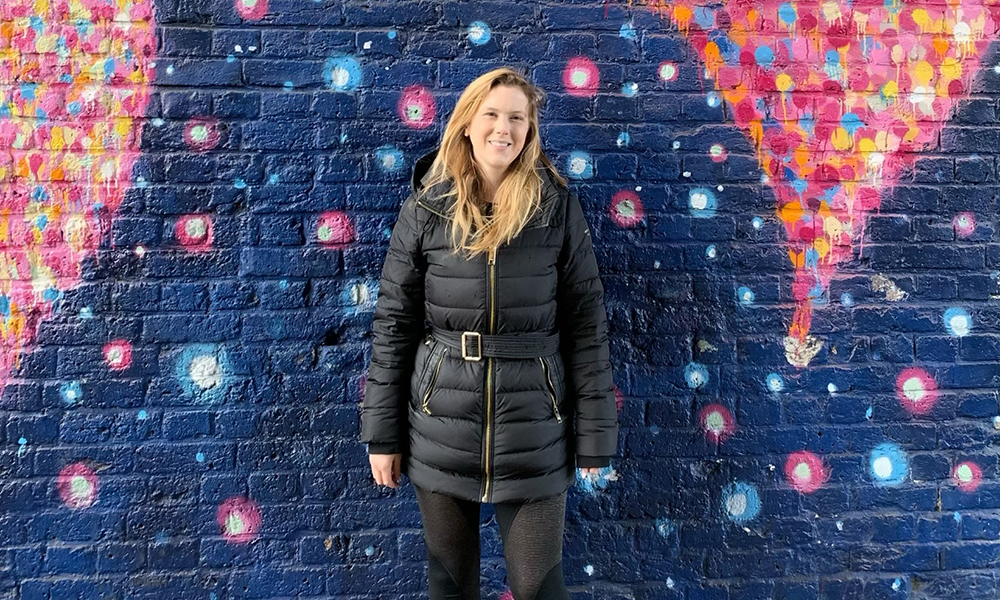
In the latest edition of our Staff Profile series, we spoke to Section Manager Debbie Oram about her new role as Faculty Data Advisor, tips for working remotely and what motivates her to champion equality, diversity and inclusivity (EDI).
Introduce yourself – who are you and what do you do?
Hello, I am Debbie Oram and work as a Section Manager within Immunology and Inflammation. I provide a range of financial and HR administrative support to a number of academics and researchers, as well as managing both post-award and pre-award processes for research grants. Alongside this, I also play a part in the EDI Committee and am the Mentor Coordinator for the Department. I am also well known within the Department for my collection of sparkly attire which can guarantee to brighten anyone’s day.
When did you join the Department, and where were you working before this?
I joined the Department in September 2019 having previously worked as the Department Administrator within Surgery and Cancer which covered a number of overarching roles across four Divisions. This role rapidly evolved into me taking on an interim Communications role, as well as being a Mentor Coordinator, Data Officer, Champion for EDI and a part of a very successful Athena SWAN Silver Award. It’s fair to say I like to keep busy and involved.
Prior to Imperial, I worked at UAL where I worked in Business Development alongside being an interim Customer Service and Marketing Team Leader in a more commercial environment.
Can you tell us a bit about your new additional role as Faculty Data Advisor?
In a nutshell, I will be a point of contact for giving any advice or guidance on GDPR issues and concerns that may arise across the Faculty. I will also be ensuring current practice is compliant with data protection and identifying any gaps in this and addressing any risks. I am also responsible for providing specialist support and advice to information asset owners to support them in registering their own asset registration, before acting as a triage for submissions ensuring relevant data is accurate and all elements are included.
You’re also an active member of the Department’s Athena SWAN team. What’s the main thing that motivates you as a champion of equality, diversity and inclusivity (EDI)?
It still amazes me that there is still such a gap in this area is this day and age. Everybody deserves to be treated as equal. Without a doubt in life, we all have our own strengths and weaknesses, but there is a huge strength in our differences and you learn so much from diversity. I fully believe that nobody is more worthy than another when it comes to EDI, and a great example of that is this current climate we are living in. Every single person across the world right now is under the same COVID-19 cloud and no matter who you are, how much power you have, your gender, what you look like, we are all as one, under the same rules and facing the same risks. I really hope for a day when EDI is just a matter of course and not something that people have to think about in order to action. If I can be a small part of this change then that is an instant motivation for me.
What are your biggest passions/hobbies outside of work?
If I am not working in medical research, I am working, doing or watching sport. I have been a part of the operational side of major sporting events since London 2012 and have since been at 31 events across the world which takes up my annual leave or weekends. I am also a keen runner having completed two marathons and four 100km ultra-marathons for charity and am currently training for the Chicago Marathon in October (hopefully it goes ahead) followed by the Tokyo Marathon next March. Sport aside, my main hobbies are live music, Buddy the cat and putting my hand to DIY to fill my time.
Top tips for working remotely?
Structure, structure, structure and copious amounts of tea. I have found it so important to separate work from home life especially with the restriction on being allowed outside. That means keeping hold of a work routine, sticking to core working hours, setting up a good working environment and scheduling key tasks on a daily basis.
Also, keeping good communication with your team: you can feel so distant so it’s crucial to stay well connected. As a Mental Health First Aider, I would also say that it’s also vital to take regular breaks and not put too much pressure on yourself. We are very much in a period of great uncertainty and change and that can affect us so much on a mental level.